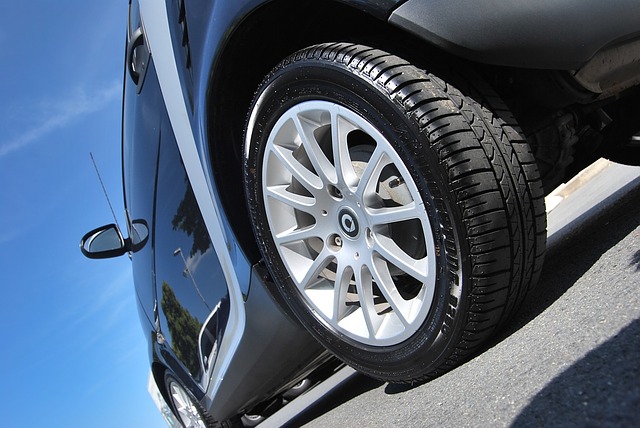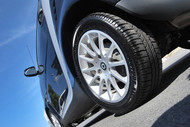5 Reasons You Shouldn't Overinflate Your Tires
26th Feb 2021

Damage form Overinflated Tires
Are you guilty of overinflating your vehicle's tires? You aren't alone. Millions of drivers put too much air in their tires. When a tire is low in air, they'll overinflate it, believing it will maximize their vehicle's performance. Overinflating, however, can cause several problems. If you overinflate your vehicle's tires, you may experience one or more of the following problems.
#1) Susceptibility to Debris
Overinflating your vehicle's tires will make them more susceptible to debris. Roads contain debris. From pebbles and cracked pavement to trash, fasteners and more, there's debris on most public roads in the United States. When they are overinflated, your vehicle's tires are more likely to sustain damage from this debris. You may drive over a piece of debris, only for it to puncture or otherwise damage an overinflated tire.
#2) Faster Tread Wear
The tread will wear will more quickly if you overinflate your vehicle's tires. All tires have tread. Tread consists of a rigid pattern that's designed to create friction with the road. Over time, tire tread will wear down, resulting in smoother tires that create less friction. With that said, the tread on your vehicle's tires will wear down more quickly if they are overinflated.
#3) Risk of Blowout
Overinflating your vehicle's tires also increases the risk of a blowout. Tires can typically withstand a moderate amount of force without blowing out -- but only if they are properly inflated. Overinflating your vehicle's tires means they'll be more likely to blow out. Driving over a piece of debris or even a speed bump may cause a tire blowout. To protect against blowouts, you need to fill your vehicle's tires with the appropriate amount of air.
#4) Poor Suspension
Another reason you shouldn't overinflate your vehicle's tires is because of its impact on suspension. It won't necessarily damage or otherwise harm your vehicle's suspension. Nonetheless, you can expect a bumpy driving experience if your vehicle's tires are overinflated. Even small bumps will be noticeable. Your vehicle will essentially bounce around when driving over small bumps if the tires are overinflated.
#5) Increased Risk of Accident
Many vehicle accidents are attributed to overinflated tires. The National Highway Traffic Safety Administration (NHTSA) claims that 11,000 accidents are attributed to bad tires each year in the United States. There's only so much air that a tire can hold. If they are overinflated, they may puncture or pop. When this occurs, it can cause you to lose control of your vehicle, thus increasing the risk of an accident.
Always keep your tires inflated at the correct tire pressure. To maintain tire pressure, keep a tire pressure gauge in your vehicle.



